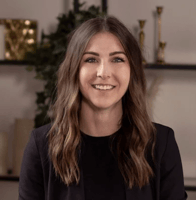April is the Co-Founder and Chief Growth Officer at Toast. Toast is a membership-based women’s...
Derrick Hunter of Bluesky Equities and The Hunter Family Foundation
In highlighting key people in the Calgary ecosystem through our Profile series, I swung by Bluesky Equities to talk with Derrick Hunter, CEO and President. Bluesky is one of the most active investors in the city. Derrick is also a trustee of the Hunter Family Foundation, which works to instil innovative and entrepreneurial mindsets in the city.
We talked about the future of the city, what he's seen change in the past, and his involvement in the University and what he's seeing coming out of there.
Who is Derrick?
I’m the CEO of Bluesky Equities and I’m one of four trustees of the Hunter Family Foundation. Bluesky is purely profit-seeking, and the foundation is purely philanthropic.
I’m just a guy from Calgary, born and raised in Calgary, married a girl from Calgary, and had kids in Calgary, both my parents were born here. I’m a guy who likes to grow things and support people who grow things. I’ve been an entrepreneur plenty of times, and made a lot of mistakes – I wish a lot of the elements of the community now (I’ve helped launch a few of them) were around 30 years ago when I was a young entrepreneur.

How do you approach working with the companies you invest in?
Bluesky invests in a lot of different companies, our seed-stage portfolio is just one of many. Our approach is to put lots of bets on the table because it’s difficult to pick winners. We have a process to work our way through the funnel and the opportunities we see. Really, we write a lot of checks, more than pretty much anybody, and we use that to observe management and see how well they can execute and use that information to inform our decision on the next round. We always hope to be comfortable enough to write a second check. But because we have so many, we can’t mentor each one. We tell founders we’re not going on the board, we’re not funding a pivot, but what we will do is help with advice. We just don’t have the time or the people, we see about 250 deals a year in the seed-stage asset category, but we invest in about 5% of those. Some people may say that seems low but it’s actually really high in the VC world.
I am a fellow at the Creative Destruction Lab and mentor there though.
What do you look for in the 5% you do accept?
We have ten-point criteria that looks at valuation, competitive advantage, do founders have skin in the game, do we see a path to a 10x and in what time frame. It’s not too surprising. We take the point of view that if we’ve never invested in an entrepreneur, we can’t assess whether they’ll be a good founder or not. We have them send us quarterly financial statements, we encourage them to write a letter to investors every quarter, and we try to instill habits that help them be transparent and comfortable with delivering both good and bad news. But for the most part, we ask ‘Can we see this 5 million dollar company become a 50 million dollar company in 5-7 years?’, and if the answer is no, it’s not a good fit for us. Just because we decline a company doesn’t mean it’s a bad company though.
Probably the biggest single reason we don’t invest in a company is valuation. It’s difficult to assess because it can be more art than science. Most of the time, it seems founders have an inflated idea of what their company is worth. If we just can’t get there, we won’t make the deal. We’re disciplined with our decisions.

Taken from Bluesky Equity website
How does a founder undervaluing their company come across to you?
You don’t see it often, it’s rare, almost always the other way. It does make you wonder though; it can make you question how committed the founder is if there’s not enough in it for them. I want you to build something meaningful to you.
We get 200-300 deals a year, and we’ve been doing this for a while, we feel like we have a pretty good of what we think a company is worth, but the founder doesn’t necessarily have that range of data. They may have gotten info from uninformed people, or read something on BetaKit that isn’t necessarily true. There’s an information asymmetry and Founders find it hard to know where to get help with valuation. It’s always a learning experience for them. You can talk to me and maybe get a completely different answer than from another firm; that’s what makes a market, there are different opinions.

What do you see in the future of the city?
I hold the opinion that if you want to create economic opportunity, the best way is through entrepreneurship. In order to make that happen, we need to make it easier for entrepreneurs to get started, to inspire and encourage them, to show them the path, and to provide support. It’s hard enough anyway, we want to build the scaffolding around them. You want to encourage start-ups and encourage people to think they can do this, to train them to identify their strengths and their opportunities. To demystify the process and help them make that leap. It becomes a virtuous circle where the more start-ups there are the easier it becomes. As we’re seeing now, the University of Calgary has had more start-ups than any other university in the country for three years in a row now, because we encourage it.
The point of it is that we want to have so many tech companies and tech jobs in Calgary in 2031, how do you know you’re on track to achieving that goal? You have to measure it; that's done by folks that go out and survey the community. I’m fully on board with those goals so that young people like you, if you wanted to stay here, you could build a life here. It wasn’t that many years ago that all the headlines were all the young people were moving away from Calgary, think about how quickly that’s changed. You can make any business you want in Calgary now. It’s presenting alternatives to people so they can make their own decisions and not letting them assume they have to leave.
I spoke to a young man in his third year of computer science at the university and I asked him what he wanted to do when he graduates, and he said ‘Well I’ve gotta go out to Silicon Valley because there’s no jobs here’, and I said that’s ridiculous. I invited him down here, and we talked about the city, and he had no idea that all this was possible here. Fast forward a few years, he graduated, stayed here, and started a company. The company’s growing, they just needed somebody to show them it’s possible.
If you want to reach those goals as a community, such as a certain number of jobs or number of companies, some percentage of that has to come from the university because that’s where the big brains hang out. What we try to do with the Hunter Hub on campus is encourage culture-changing objectives. Particularly, post-docs, PhD students, and professors will think in commercial terms now, where they maybe weren’t encouraged to do that a few years ago. These people may not be thinking about being entrepreneurs, but maybe you’re working on something that somebody can turn into commercial potential. That’s how you create opportunities, is to bake it into the DNA. We’ve been grinding away at the Hunter Hub for the past 6 years, and the data shows we’re having an impact.
It's like how many ideas are sitting on professors' bookcases but they just don’t know what to do with them.
There is a leading VC fund on campus now. it has 6 funds now. I’m a part of the General Health Fund, and we’ve invested in 34 UofC-derived medical companies. Some of them are doing really well. People don’t necessarily think of Calgary as a place to get medical technology, but you should. If you walk around Foothills Campus, you’ve got all these world experts that were brought here to do really cool things, and a lot of it is turning into technology that can be used in the broader world.
With the deep roots you have in the city, what has it been like to watch the transitions in the city’s culture?
I have 3 kids in their 20s, and I come back to this point of doing it for their generation. I want them to feel like they can stick around and build a life if they want, that applies to all their friends, that applies to you.
Not that many years ago there was a belief the only business you could build in Calgary was an energy company. I was in the energy industry, deliberately moved out of it, but I was always under the impression there’s no reason you can’t have multiple industries in a city like this, and I definitely believe that now. I hope the positive momentum we’ve got continues. I was on a panel a few years ago around capital formation, there was a conference in 2019 when a VC asked Jason Kenney what he was going to do to help tech and innovation in Alberta and he said ‘nothing’. We went from that to where we are now. Things have moved quite a ways in a short amount of time, but we’ve got to keep the momentum going. I think Alberta can be a sea of entrepreneurial prosperity.
With the school specifically, I did my MBA there, and there was an entrepreneurship program that was a fairly large component of it, but it was subsequently eliminated by a later Dean. One of the things that bothered me when I was a student was the expectation that we would work with entrepreneurs, but the opportunities to connect with businesspeople were limited. I’ll always say yes to speaking on a panel at the school if I can because I wish I had more of that when I was a student. I think you can learn a lot from talking to people rather than listening to a lecture for an hour. In a city like Calgary where there’s a dense business community, there’s no reason we shouldn’t have those opportunities.
In 2012, we came to realize that Haskayne was the only business school in Canada that didn’t have an entrepreneurship concentration. And that felt like a real miss for a city that thinks of itself as a bunch of entrepreneurs. That’s what led to the Hunter Center for Entrepreneurship and Innovation. We created a course – Entrepreneurship 317 – that we tried to make as real as possible with real jurors, real mentors, and real prize money. I’ve asked a lot of students what they think of it, and it seems like they either love it or hate it. It either changes people’s lives or they just want to read a book and write a test. But even if students hated the course, I think it was still probably good for them

Here’s how I think about it: realistically if you’re 25 years old and graduating from university, the world is changing so quickly that you have to assume you’ll pivot your career multiple times. What we’re trying to do is train people to be open-minded, creative, and adaptable. It’s the difference between handing a student a case or telling them to write their own. I think the type of education that encourages critical thinking and entrepreneurially.
That course then became required after a couple of years, and it created a demand for other faculties which we addressed through the Hunter Hub. You and I are both business students, but we don’t have a monopoly on business ideas. I argue even if you’re a BFA, you need to think entrepreneurially, you need to market and promote your work.
In a fast-changing world, I think we’d be doing our students a disservice if we didn’t structure opportunities that way.
The other thing I learned, my first degree was in Geology, and there were very few opportunities at the time, it was a real struggle. I learned how tiny my toolbox was, and I wanted a big toolbox, that’s part of the reason I went back and did my MBA. One of the nice things about a BCom or an MBA is you’ll learn the technical expertise, but other skills you’ll learn can be applied to many different situations.

What are you proud of?
I’m proud of my family, I’ve been married 30 years, and I’m proud we’ve made it this far. I’m a very content guy, I’ve reached a point in my life where I get to spend a lot of my time helping and building for others. There’s nothing more satisfying than supporting a company from an idea to seeing success. We’ve been fortunate here at Bluesky to see many of these. We’re just one little part of it, but because we’re active at the early stage we can move the needle a bit. Once we’ve made a bet on you, you're part of the family in a way, we want everyone to succeed.
In this position, it may seem like you have to make decisions around how you find your contentment, whether that comes more from work or relationships.
My priority was always on family, and it worked out well. It was family first, for sure, we went to everything. Even though I was an entrepreneur plenty of times and came from an entrepreneurial family, the priority was always family. You don’t need to hit the cover off the ball a whole lot of times in your life, it’s one or two good investments or businesses, and in most cases that’s what makes it.
You just want to be a little more right than wrong. A good example, there was a software company that was faced with the decision to sell or stick with the company and keep trying to grow it. They ended up deciding to sell, I can’t blame them for that, it set them up for life and they could do whatever they wanted. And that typically only happens for entrepreneurs. Sometimes it means something’s got to give and you work 70 hours a week, but nobody ever wished they spent more time in their office on their deathbed. Some weeks I’m busy, but I spend more time away than I did before, and I’m surprisingly really happy with that, it’s against my natural tendency. It’s hard for some people to give up control, but I found it easier than expected. And it’s satisfying, I get to see other people take on more responsibility and grow.
A huge thank you to Derrick for chatting with me about what he sees going on in the city, and for his support of the Calgary innovative ecosystem.
Writer and Photographer | Sam Doty



